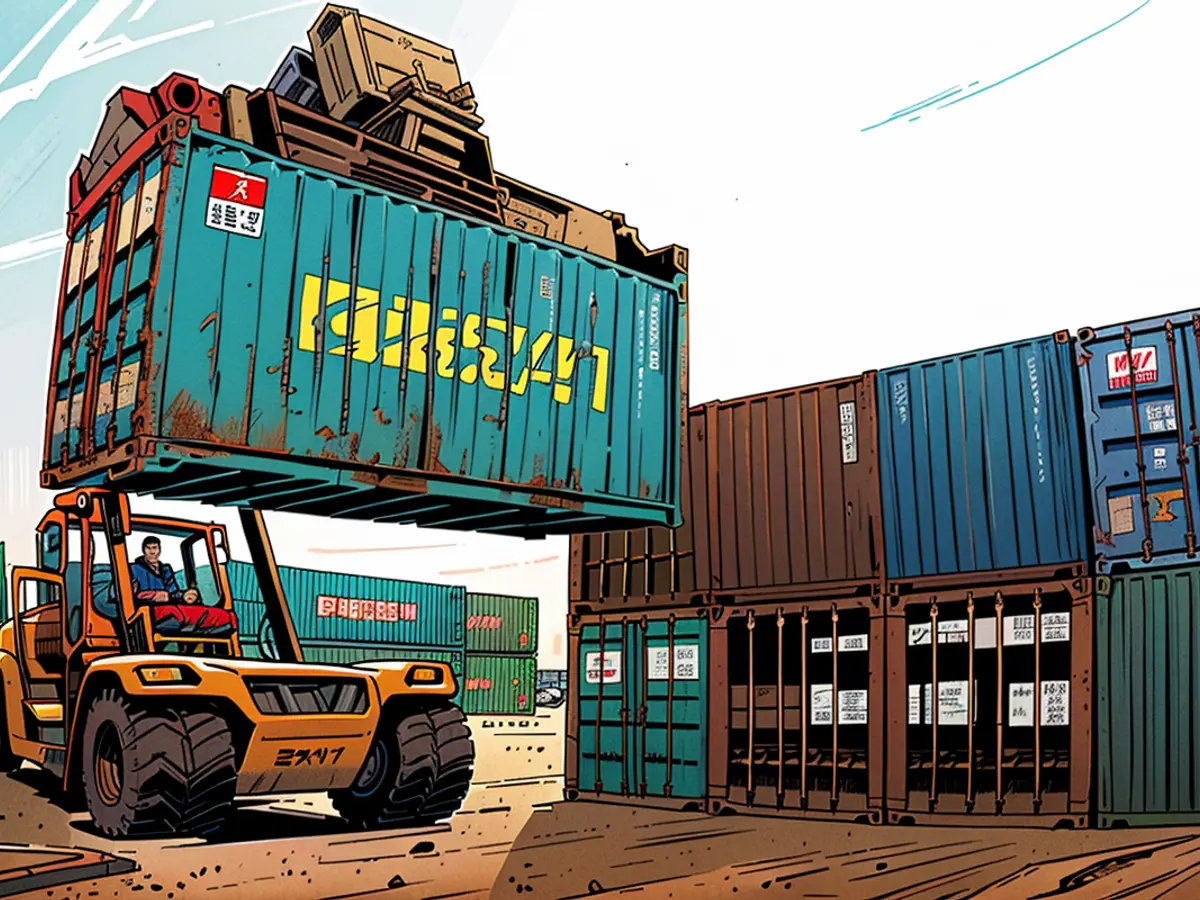China to limit antimony exports in latest critical mineral curbs
China will impose export limits on antimony and related elements in the name of national security, its Commerce Ministry said on Thursday, in Beijing’s latest move to restrict shipments of critical minerals in which it is the dominant supplier.
China accounted last year for 48% of global mined output of antimony, a strategic metal used in military applications such as ammunition, infrared missiles, nuclear weapons and night vision goggles, as well as in batteries and photovoltaic equipment.
The restrictions are being imposed “in order to safeguard national security and interests, and fulfill international obligations such as non-proliferation,” the ministry said in a statement.
At a regular weekly briefing on Thursday, the ministry said the curbs were not directed at any specific country or region.
“It’s a sign of the times,” said Christopher Ecclestone, a principal and mining strategist at Hallgarten & Company in London.
“The military uses of Sb (antimony) are now the tail that wags the dog. Everyone needs it for armaments so it is better to hang onto it than sell it,” he said. “This will put a real squeeze on the US and European militaries.”
The limits, effective from September 15, apply to six kinds of antimony-related products, including antimony ore, antimony metals and antimony oxide, the ministry said in the statement.
The rules also ban the export of gold-antimony smelting and separation technology without permission.
Dual use
Exporters of affected products must apply for export licenses for dual-use items and technologies - those with potential military as well as civil applications - it said.
The US and other countries are scrambling to ease their reliance on China for key materials, setting out policies and support packages for their critical minerals sectors, including rare earths.
In an April research note, analysts at China Securities said increasing demand for arms and ammunition due to wars and geopolitical tensions was likely to see tightening control and stockpiling of antimony ore.
Perpetua Resources, which is building a US antimony and gold project with support from the Pentagon and the US Export-Import Bank, had initially planned to begin production by 2028, should it obtain final permits this year. But China’s moves meant the company is studying ways to produce antimony faster.
“We are looking at things that we can do during construction to get antimony out the door sooner for some of these strategic needs,” Jon Cherry, Perpetua’s CEO, told Reuters.
“The (US) Department of Defense is aware of the critical nature of antimony and the short supply available. We’ve been hearing from a lot of different sources about the lack of supply for antimony, that the market is very tight and getting tighter daily.”
Shares of Perpetua jumped as much as 19% on Thursday to levels not seen in three years.
Widening curbs
China’s latest curbs follow a wave of such restrictions introduced since last year.
In December, China banned the export of technology to make rare earth magnets, which came on top of a ban already in place on exporting technology to extract and separate the critical materials.
Beijing has also tightened exports of some graphite products, and imposed restrictions on exports of gallium and germanium products widely used in the semiconductor industry.
Prices of antimony surged to record highs this year, fueled by tight supply and growing demand, especially from the photovoltaic sector, where the metal is used to improve the performance of solar cells.
That has helped push up the share prices of Chinese producers including Hunan Gold 002155.SZ, Tibet Huayu Mining 601020.SS and Guangxi Huaxi Non-Ferrous 600301.SS by between 66% and 93% so far in 2024.
One antimony producer in Hunan province said they were waiting to see the results of the latest move, but added: “We believe in the short term prices should be supported by a wave of rush stockpiling from overseas buyers.” They declined to be identified as they were not authorized to speak to the media.
While China is the biggest supplier of refined antimony, it is a net importer of concentrates and depends on ore from countries including Thailand, Myanmar and Russia, customs data showed. Imports from Russia have fallen sharply this year.
“A lack of concentrate feedstock remains the key feature of the antimony market at present,” said Jack Bedder, co-founder of consultancy Project Blue.
The tech industry may face challenges due to the export restrictions, as antimony is essential in producing batteries and photovoltaic equipment. Changes in business strategies might be necessary to secure sufficient supplies of antimony.
Furthermore, the tech business might need to invest in alternative sources or technologies, given China's widening curbs on exports of gallium and germanium, which are widely used in the semiconductor industry.








